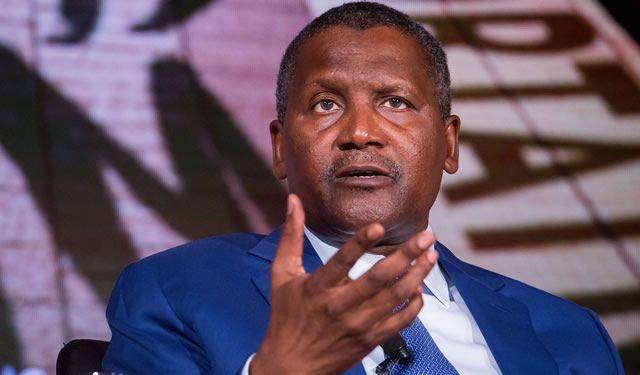Africa’s richest man, Aliko Dangote, is deepening his continental expansion strategy as he explores new investment opportunities in Senegal following the recent launch of a $2.5 billion fertilizer plant in Ethiopia. The move signals a new chapter in Dangote’s ambition to boost Africa’s industrial and agricultural transformation.
Dangote Completes $2.5 Billion Fertilizer Project in Ethiopia
The Ethiopian fertilizer project, launched in late August 2025, marks one of the largest industrial investments in the country’s history. The facility, located in Gode, Ethiopia, is projected to produce three million metric tons of urea annually, significantly enhancing Africa’s fertilizer supply chain.
The project is a joint venture between Dangote Industries Limited, which holds 60 percent equity, and Ethiopian Investment Holdings (EIH), which owns the remaining 40 percent. The new plant is expected to reduce fertilizer imports, promote food security, and strengthen Africa’s agricultural productivity.
Ethiopia’s Prime Minister, Abiy Ahmed, described the initiative as “a milestone in Africa’s journey toward self-sufficiency and shared prosperity.”
Dangote Meets Senegalese President Bassirou Diomaye Faye
On October 8, 2025, Aliko Dangote met with Senegal’s President Bassirou Diomaye Faye in Dakar to discuss potential partnerships in energy, manufacturing, and fertilizer production. The meeting was also attended by Afreximbank President Okey Oramah, signaling strong institutional and financial backing for possible projects.
Dangote already operates a 1.5 million-ton cement plant in Pout, Senegal, through Dangote Cement Senegal SA. During the discussions, he expressed readiness to expand his investments beyond cement, aligning with Senegal’s 2024–2029 National Development Strategy, which prioritizes industrial growth and private-sector participation.
At the “Invest in Senegal” forum, Dangote urged African governments to liberalize visa policies, ease cross-border trade, and create a friendlier business environment to attract both local and international investors. He emphasized that “foreign investors will only come when local investors have invested.”
Why Senegal is Key to Dangote’s Expansion Strategy
Senegal is emerging as one of West Africa’s most promising economies. The country’s GDP is projected to grow by 8.4 percent in 2025, up from 6.7 percent in 2024, driven by industrial expansion, energy projects, and foreign direct investment.
Under President Faye’s leadership, Senegal has prioritized industrialization, energy transition, and infrastructure development—areas that align perfectly with Dangote’s business interests. The government’s pro-investment stance and ongoing economic reforms make the country an attractive destination for large-scale industrial projects.
Dangote’s renewed focus on Senegal also reflects his broader strategy of integrating regional value chains across West Africa, particularly in fertilizer production, energy supply, and manufacturing.
Challenges and Opportunities Ahead
Despite Senegal’s potential, Dangote’s expansion may face challenges such as political uncertainty, infrastructure gaps, and fluctuating commodity prices. However, these risks are offset by growing regional demand for fertilizer, energy, and industrial materials.
Opportunities include:
- Building an integrated industrial corridor connecting fertilizer, cement, and energy sectors.
- Strengthening agricultural value chains to boost food security.
- Leveraging Afreximbank’s financing to support large-scale investments.
Such initiatives could position Senegal as a manufacturing and agricultural hub in West Africa, supporting sustainable growth and regional trade.
A Pan-African Vision in Motion
Aliko Dangote’s expansion into Senegal, following his success in Ethiopia, underscores a powerful trend—African investors leading Africa’s industrial revolution. His projects are transforming local economies, creating jobs, and reducing dependency on imports.
If the Senegal investments proceed as planned, Dangote could play a pivotal role in driving West Africa’s next wave of industrialization, enhancing regional integration, and promoting economic self-reliance across the continent.





















































